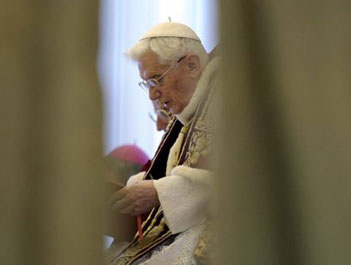By William MacDonald
THE longsuffering of God is His willingness and ability to show restraint and self-control in dealing with human sin, provocation, and rebellion. He could judge sin instantly, and in isolated cases He has done so. Generally, however, He has endured human wickedness with marvelous forbearance and patience. The fact that any of us is here to tell the story is a tribute to the longsuffering of God!
Jehovah proclaimed Himself to Moses, as the “Lord, the Lord God, merciful and gracious, longsuffering, and abounding in goodness and truth” (Exodus 34:6).
Nahum spoke of Him as “slow to anger and great in power” (1:3).
Apostle Paul asks every self-righteous moralist, “Do you despise the riches of His goodness, forbearance, and longsuffering, not knowing that the goodness of God leads you to repentance>” (Romans 2:4).
In another place, Paul speaks of the Lord as enduring “with much longsuffering the vessels of wrath prepared for destruction” (Romans 9:22). | The power of forgiveness |
In answer to the question about why God doesn’t deal with sinners promptly, Peter writes, “The Lord is not slack concerning His promises, as some count slackness, but is longsuffering toward us, not willing that any should perish but that all should come to repentance” (2 Peter 3:9).
God would be justified in punishing all sin on the spot. But He does not delight in the death of the wicked. He wants people to repent and live. Therefore, He suffers long with the insolence and hostility of people. He delays the day of judgment so that men and women and boys and girls might come to the pierced feet of Christ Jesus and acknowledge Him as Lord and Savior.
Needless to say, He wants to see His longsuffering reproduce in us, His people. He wants to see us bearing up patiently and triumphantly under the aggravations of life. That means we will not be quick-tempered; we will not have a short fuse. We will not fly off the handle easily. We will not seek to retaliate. Rather, we will display a conquering patience in the face of insult and ill-treatment. | The importance of forgiveness |
An incident in one of Corrie ten Book’s books illustrates this beautifully. She and her sister, Betsy, were in a concentration camp, suffering indescribably pain and indignity. Yet Betsy would tell Corrie that when they got out, they had to do something to help those people. Corrie naturally thought she was referring to their fellow prisoners. But Betsy wasn’t referring to them at all. She was referring to the guards, their persecutors!
Corrie wrote, “And I wondered, not for the first time, what sort of a person she was, this sister of mine, what kind of a road she followed, while I trudged beside her on the all too solid earth.” Corrie saw Betsy walking a heavenly pathway while she was living only a natural life, failing to rise above flesh and blood. The truth, of course, is that both Betsy and Corrie were walking the road of longsuffering, in spite of Corrie’s disclaimer.
The history of the Christian martyrs, both in olden and modern times, is filled with almost incredible examples of longsuffering. We marvel not only that they were able to endure extreme torture but also that they prayed for their guilty assailants.
Most of us are never called upon to endure physical pain for Jesus. Our longsuffering is limited to minor annoyances, insults, ridicule, and evil speaking. However, we should thank the Lord that we are counted worthy to suffer in any way for the sake of His Name.
Excerpted from William MacDonald’s book, ‘Alone in Majesty’, the attributes of a Holy God.’





















